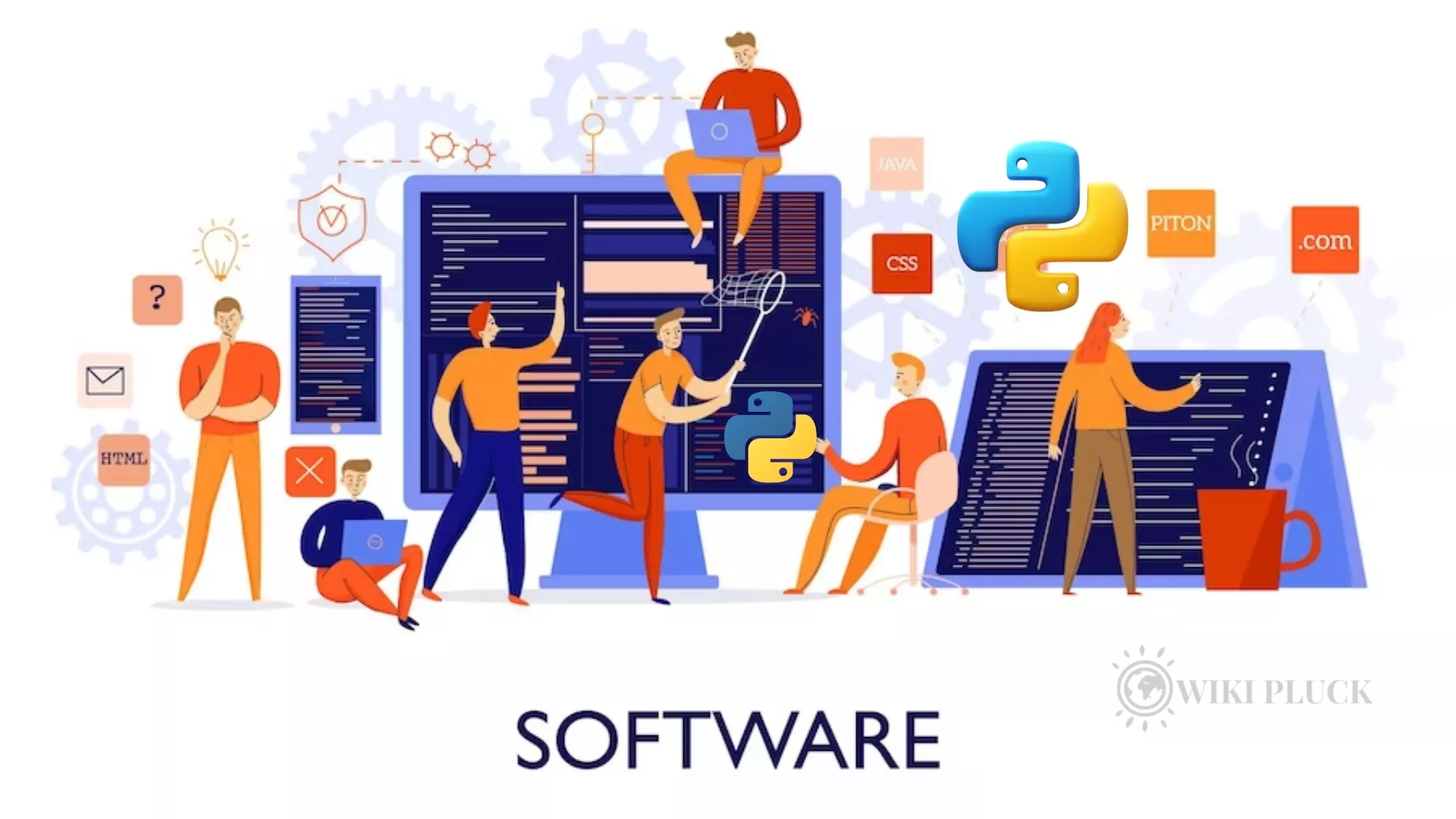Introduction
In the ever-evolving landscape of software development, Python stands out as a versatile and robust programming language that continues to gain popularity and dominance. With its simplicity, readability, and extensive library support, Python has become the go-to choice for developers across various domains. In this article, we explore the compelling reasons why Python remains a top contender for software development projects in 2024.
Versatility and Ease of Learning
Python’s simplicity and readability make it an ideal language for both beginners and experienced developers. Its clean syntax and natural language constructs facilitate rapid development and ease of maintenance. With Python, developers can quickly prototype ideas, experiment with new concepts, and translate logic into code with minimal effort.
The language’s versatility allows it to be used for a wide range of applications, including web development, data science, artificial intelligence, automation, and more.
Extensive Library Ecosystem
Python boasts a rich ecosystem of libraries and frameworks that expedite development and empower developers to accomplish complex tasks with ease. From Django and Flask for Web Application Development to NumPy and pandas for data manipulation and analysis, Python’s vast library collection covers almost every conceivable use case. Additionally, Python seamlessly integrates with other languages and platforms, further enhancing its interoperability and versatility.
Strong Community and Support
Python enjoys a thriving and vibrant community of developers, enthusiasts, and contributors who actively contribute to its growth and evolution. This vast network provides invaluable resources, documentation, tutorials, and support forums, making it easier for developers to learn, troubleshoot, and collaborate on projects.
The Python community fosters a culture of knowledge sharing and collaboration, empowering developers to leverage collective expertise and overcome challenges effectively.
Adoption in Cutting-Edge Technologies
Python’s versatility and performance have made it a preferred choice for cutting-edge technologies such as artificial intelligence & machine learning, and data science. Libraries like TensorFlow, PyTorch, and scikit-learn have established Python as the de facto language for building and deploying advanced machine learning models and algorithms.
Moreover, Python’s simplicity and flexibility make it well-suited for rapid prototyping and experimentation, accelerating innovation in emerging fields.
Cross-Platform Compatibility and Scalability
Python’s cross-platform compatibility allows developers to write code once and run it anywhere, making it a popular choice for multi-platform development. Python offers consistent performance and behavior across environments, whether programs are deployed on Windows, macOS, or Linux.
Furthermore, Python’s scalability enables it to manage projects of varied sizes and complexity, ranging from tiny scripts to large-scale corporate programs, without sacrificing performance or maintainability.
Also Read: The Evolving Landscape Of Software Testing Services: Current Trends And What Lies Ahead
Python for Enterprise Software: Powering Industry Giants
Why Python for Enterprise Software?
Python has emerged as a top choice for enterprise software development due to its adaptability, scalability, and strong ecosystem. Enterprises use Python to develop mission-critical systems, handle large-scale data processing, and implement complicated business logic. Its ease of learning and substantial library support make it an excellent choice for shortening development cycles and producing high-quality products.
Industry Giants Using Python
Many industry titans, like Google, Facebook, Netflix, and Instagram, use Python for corporate applications. Google uses Python extensively for a variety of tasks, including web development, automation, and machine learning.
Facebook employs Python for its backend infrastructure and data processing, whereas Netflix uses Python for content distribution and recommendation algorithms. Instagram, which was acquired by Facebook, also uses Python for its backend services and data processing pipelines.
What Is Enterprise Software?
Enterprise software refers to applications designed to meet the complex needs of large organizations and businesses. These software solutions typically integrate multiple functionalities, such as customer relationship management (CRM), enterprise resource planning (ERP), supply chain management (SCM), and human resources management (HRM). Enterprise software serves as the backbone of organizational operations, facilitating efficient workflow management, data analysis, and decision-making processes.
Also Read: What is the Importance of User Testing in Web Development?
Reasons To Choose Python For Enterprise Apps
Python provides some appealing advantages when developing enterprise applications. Its simplicity and readability boost developer productivity while shortening time-to-market for new features and functions. Python’s vast library ecosystem includes pre-built modules and frameworks for a wide range of enterprise needs, including web development (Django, Flask), data analysis (Pandas, NumPy), and machine learning (TensorFlow, PyTorch). Furthermore, Python’s cross-platform interoperability means that programs may be deployed seamlessly across several environments, allowing enterprises to expand them effectively.
Why Is Python Best Suited For Business?
Python’s usefulness in business originates from its ability to expedite development processes, promote innovation, and drive business growth. Its simple syntax and high-level abstractions allow developers to concentrate on solving business challenges rather than dealing with technical details.
Python’s adaptability enables enterprises to respond rapidly to changing market demands and create custom solutions that are suited to their specific needs. Furthermore, Python’s strong community support and vast documentation promote continual learning and information exchange, allowing firms to stay competitive in a fast changing digital market.
Advantage of Python for Enterprise Software
Python Development offers numerous advantages for enterprise software development, making it a preferred choice for businesses of all sizes. Some of the key advantages include
Versatility
Python is a versatile language that can be used for a wide range of applications, including web development, data analysis, artificial intelligence, machine learning, automation, and more. This versatility allows businesses to address diverse needs and develop comprehensive solutions using a single programming language.
Productivity
Python’s simplicity and readability contribute to higher developer productivity. Its clean syntax and natural language constructs enable developers to write code quickly and efficiently, reducing development time and effort. Additionally, Python’s extensive library ecosystem provides pre-built modules and frameworks for common tasks, further accelerating development cycles.
Scalability
Python is highly scalable and can handle projects of varying sizes and complexities. Whether building small-scale applications or large-scale enterprise systems, Python offers scalability without sacrificing performance or maintainability. This scalability ensures that businesses can grow and adapt their software solutions as their needs evolve over time.
Community Support
Python boasts a vibrant and active community of developers, enthusiasts, and contributors who actively contribute to its growth and evolution. This strong community support provides businesses with access to a wealth of resources, documentation, tutorials, and support forums, making it easier to learn, troubleshoot, and collaborate on projects.
Cost-Effectiveness
Python is open-source and free to use, making it a cost-effective option for businesses looking to minimize software development expenses.
Also Read: The Future of Python Web Development: Top 5 Python Frameworks in 2023
Conclusion
As we progress through the digital age, Python’s position as a software development powerhouse grows stronger. Its versatility, simplicity, vast library support, and active community make it an essential tool for developers looking to create innovative, dependable, and scalable software.
In 2024 and beyond, Python will remain the language of choice for people seeking excellence and pushing the boundaries of what is possible in software development.
SEO Executive at BrainerHub Solutions, pioneering tomorrow’s digital frontiers. A tech-savvy creative on a quest for online innovation. Guiding brands to transform clicks into triumphs. Your reliable ally in the dynamic realm of search engine expertise and creativity.

